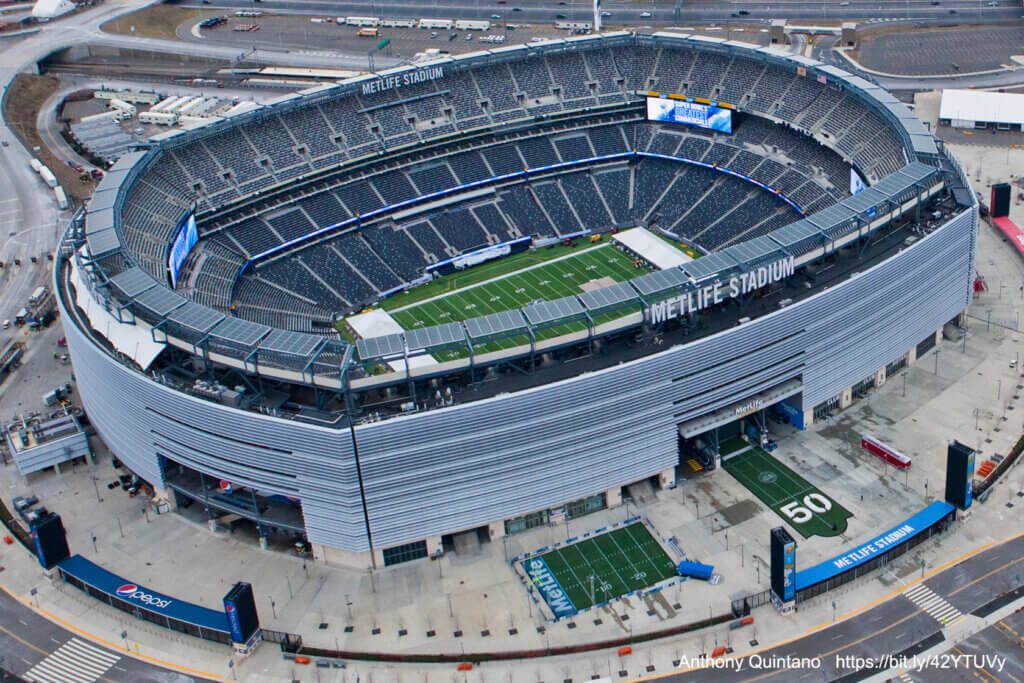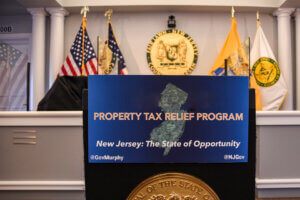West Long Branch, NJ – Reaction to New Jersey hosting the 2026 World Cup is uneven across the Garden State. North Jersey residents are more engaged and excited than those in the southern part of the state according to the Monmouth (“Mon-muth”) University Poll. Most residents believe New Jersey will reap an economic benefit from hosting the event, but in the end, neighboring New York will probably profit even more.
One-third (33%) of New Jersey residents have heard a lot about New Jersey hosting the 2026 World Cup, while 36% have heard a little and 31% know nothing about it. North Jersey residents are most likely to have heard a lot (41%) while South Jersey residents are most likely to have heard nothing at all (46%) about the state hosting eight games, including the final championship match, at MetLife Stadium. Younger New Jerseyans under age 35 (45%) are also more likely than older residents (30% ages 35 to 54 and 27% ages 55 and older) to have heard a lot about the World Cup coming to the state.
Just over 1 in 5 state residents (22%) are very excited about New Jersey hosting the World Cup and 36% are somewhat excited, while 41% are not excited about this. There are some significant regional differences in World Cup anticipation. North Jersey residents are the most likely to be excited – 29% very and 36% somewhat – while 33% are not excited about the state’s host status. In South Jersey, however, more than half (55%) are not excited about the World Cup coming to the state, with just 15% who are very excited and 30% who are somewhat excited. In Central Jersey, 18% are very excited – which is close to the South Jersey result – and 42% are somewhat excited. Another 40% are not excited – placing the amount of indifference in the central region midway between levels reported in the north and the south. The poll also finds that similar numbers of non-Hispanic whites (21%) and people of color (23%) are very excited about hosting the World Cup, but whites (45%) are somewhat more likely than other New Jerseyans (36%) to show no excitement about this news.
“The World Cup buzz is certainly bigger in the region where the matches will be held. South Jersey residents are probably more interested in the games that will be played in Philadelphia than in East Rutherford,” said Patrick Murray, director of the independent Monmouth University Polling Institute.
Six in ten (60%) New Jerseyans say the World Cup will provide an economic benefit to the state. Just 32% think it will cost the state more money than it brings in. However, 50% say that New York City – the official co-host for matches taking place on Garden State soil – will see more benefit than the host state. Just 15% say New Jersey will see more of an economic boon than New York and 31% say New Jersey and New York will share this benefit about equally.
“Most residents feel that New Jersey’s World Cup ledger will end up in the black. But there is the question about scoring an economic own goal. This may equate to New Jersey underwriting most of the expenses only to have more of the economic benefit wind up in the net for New York,” said Murray.
The Monmouth University Poll was conducted by telephone from February 29 to March 4, 2024 with 801 New Jersey adults. The question results in this release have a margin of error of +/- 4.2 percentage points for the full sample. The poll was conducted by the Monmouth University Polling Institute in West Long Branch, NJ.
QUESTIONS AND RESULTS
(* Some columns may not add to 100% due to rounding.)
[Q1-35 previously released.]
36.New Jersey will host eight games of the 2026 World Cup soccer tournament at MetLife Stadium, including the final championship match. Have you heard a lot, a little, or nothing at all about this?
| Response: | March 2024 |
|---|---|
| A lot | 33% |
| A little | 36% |
| Nothing at all | 31% |
| (n) | (801) |
37.Are you very excited, somewhat excited, or not excited about New Jersey hosting the World Cup?
| Response: | March 2024 |
|---|---|
| Very excited | 22% |
| Somewhat excited | 36% |
| Not excited | 41% |
| (VOL) Don’t know | 1% |
| (n) | (801) |
38.Do you think the World Cup will provide an economic benefit to New Jersey or will it cost New Jersey more money than it brings in?
| Response: | March 2024 |
|---|---|
| Provide economic benefit | 60% |
| Cost more than it brings in | 32% |
| (VOL) Don’t know | 8% |
| (n) | (801) |
39.Technically, New Jersey and New York City are co-hosting these matches. Who do you think will see more economic benefit from the World Cup – New Jersey or New York, or will they share the benefit about equally? [STATES WERE ROTATED]
| Response: | March 2024 |
|---|---|
| New Jersey | 15% |
| New York | 50% |
| Share equally | 31% |
| (VOL) Don’t know | 4% |
| (n) | (801) |
[Q40-42 previously released.]
METHODOLOGY
The Monmouth University Poll was sponsored and conducted by the Monmouth University Polling Institute from February 29 to March 4, 2024 with a probability-based random sample of 801 New Jersey adults age 18 and older. Interviews were conducted in English, and included 259 live landline telephone interviews, 375 live cell phone interviews, and 167 online surveys via a cell phone text invitation. Telephone numbers were selected through a mix of random digit dialing and list-based sampling. Landline respondents were selected with a modified Troldahl-Carter youngest adult household screen. Interviewing services were provided by Braun Research, with sample obtained from Dynata (RDD, n= 657) and Aristotle (list, n= 144). Monmouth is responsible for all aspects of the survey design, data weighting and analysis. The full sample is weighted for region, age, education, gender and race based on US Census information (ACS 2021 one-year survey. For results based on this sample, one can say with 95% confidence that the error attributable to sampling has a maximum margin of plus or minus 4.2 percentage points adjusted for sample design effects (1.49). Sampling error can be larger for sub-groups (see table below). In addition to sampling error, one should bear in mind that question wording and practical difficulties in conducting surveys can introduce error or bias into the findings of opinion polls.
NJ Regions (by county)
North – Bergen, Essex, Hudson, Morris, Passaic, Sussex, Union, Warren
Central – Hunterdon, Mercer, Middlesex, Monmouth, Somerset
South – Atlantic, Burlington, Camden, Cape May, Cumberland, Gloucester, Ocean, Salem
Demographics (weighted)
Party (self-reported): 26% Republican, 37% Independent, 37% Democrat
Sex: 49% male, 51% female, 1% other
Age: 28% 18-34, 33% 35-54, 39% 55+
Race: 55% White, 13% Black, 19% Hispanic, 13% Asian/other
Education: 34% high school or less, 25% some college, 23% 4 year degree, 18% graduate degree
Click on pdf file link below for full methodology and crosstabs by key demographic groups.




